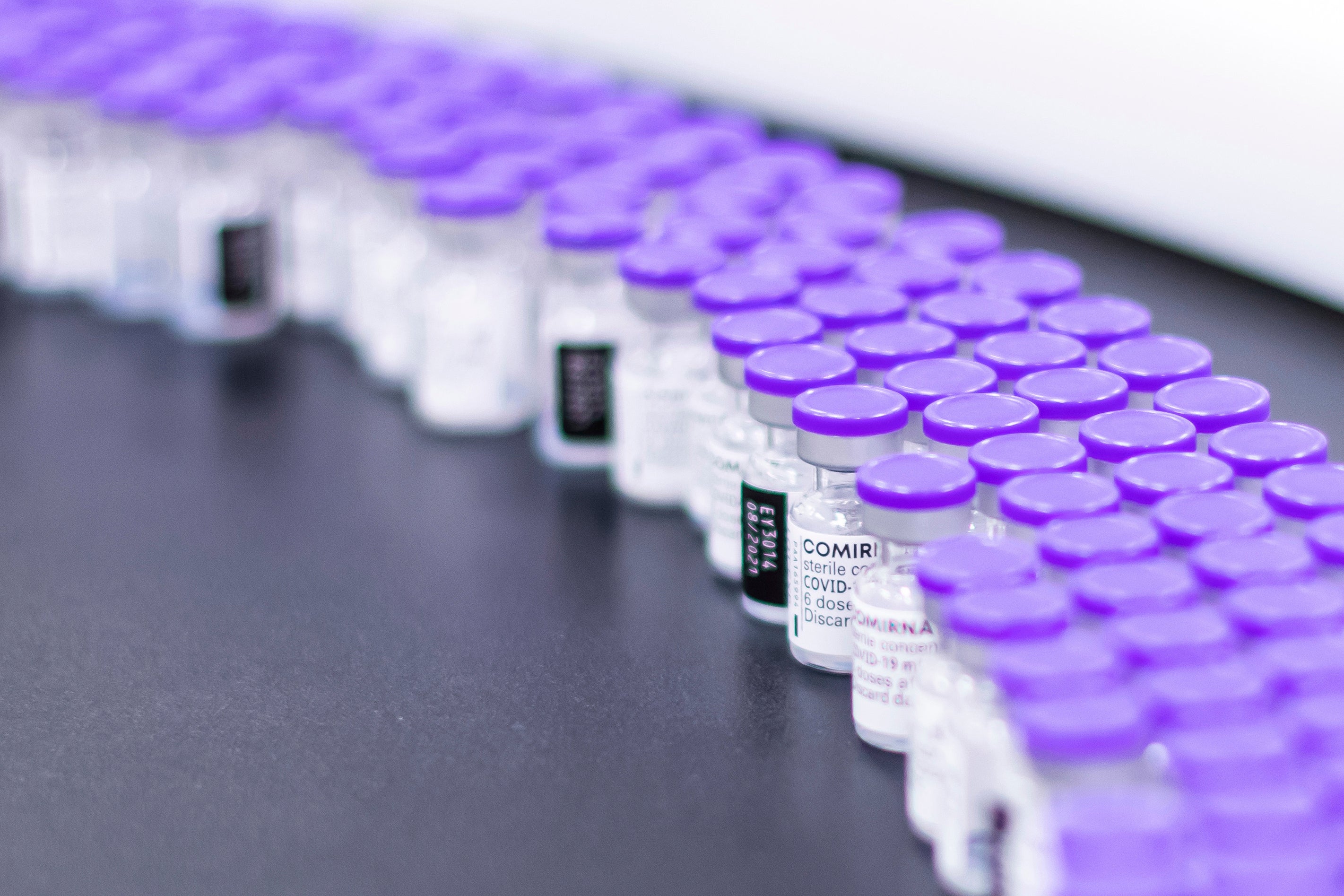COVID vaccines saved 20M lives in 1st year, scientists say
Scientists estimate that nearly 20 million lives were saved worldwide by COVID-19 vaccines during their first year

Your support helps us to tell the story
From reproductive rights to climate change to Big Tech, The Independent is on the ground when the story is developing. Whether it's investigating the financials of Elon Musk's pro-Trump PAC or producing our latest documentary, 'The A Word', which shines a light on the American women fighting for reproductive rights, we know how important it is to parse out the facts from the messaging.
At such a critical moment in US history, we need reporters on the ground. Your donation allows us to keep sending journalists to speak to both sides of the story.
The Independent is trusted by Americans across the entire political spectrum. And unlike many other quality news outlets, we choose not to lock Americans out of our reporting and analysis with paywalls. We believe quality journalism should be available to everyone, paid for by those who can afford it.
Your support makes all the difference.Nearly 20 million lives were saved by COVID-19 vaccines during their first year, but even more deaths could have been prevented if international targets for the shots had been reached, researchers reported Thursday.
On Dec. 8, 2020, a retired shop clerk in England received the first shot in what would become a global vaccination campaign. Over the next 12 months, more than 4.3 billion people around the world lined up for the vaccines.
The effort, though marred by persisting inequities, prevented deaths on an unimaginable scale, said Oliver Watson of Imperial College London, who led the new modeling study.
“Catastrophic would be the first word that comes to mind,” Watson said of the outcome if vaccines hadn't been available to fight the coronavirus. The findings “quantify just how much worse the pandemic could have been if we did not have these vaccines."
The researchers used data from 185 countries to estimate that vaccines prevented 4.2 million COVID-19 deaths in India, 1.9 million in the United States, 1 million in Brazil, 631,000 in France and 507,000 in the United Kingdom.
An additional 600,000 deaths would have been prevented if the World Health Organization target of 40% vaccination coverage by the end of 2021 had been met, according to the study published Thursday in the journal Lancet Infectious Diseases.
The main finding — 19.8 million COVID-19 deaths were prevented — is based on estimates of how many more deaths than usual occurred during the time period. Using only reported COVID-19 deaths, the same model yielded 14.4 million deaths averted by vaccines.
The London scientists excluded China because of uncertainty around the pandemic’s effect on deaths there and its huge population.
The study has other limitations. The researchers did not include how the virus might have mutated differently in the absence of vaccines. And they did not factor in how lockdowns or mask wearing might have changed if vaccines weren’t available.
Another modeling group used a different approach to estimate that 16.3 million COVID-19 deaths were averted by vaccines. That work, by the Institute for Health Metrics and Evaluation in Seattle, has not been published.
In the real world, people wear masks more often when cases are surging, said the institute's Ali Mokdad, and 2021's delta wave without vaccines would have prompted a major policy response.
“We may disagree on the number as scientists, but we all agree that COVID vaccines saved lots of lives," Mokdad said.
The findings underscore both the achievements and the shortcomings of the vaccination campaign, said Adam Finn of Bristol Medical School in England, who like Mokdad was not involved in the study.
“Although we did pretty well this time — we saved millions and millions of lives — we could have done better and we should do better in the future," Finn said.
Funding came from several groups including the WHO; the UK Medical Research Council; Gavi, the Vaccine Alliance; and the Bill and Melinda Gates Foundation.
___
AP health and science reporter Havovi Todd contributed.
___
The Associated Press Health and Science Department receives support from the Howard Hughes Medical Institute’s Department of Science Education. The AP is solely responsible for all content.